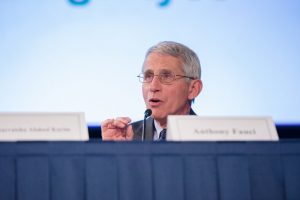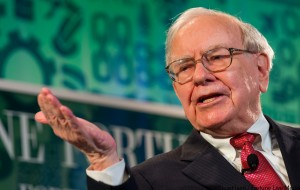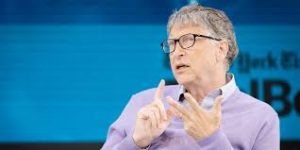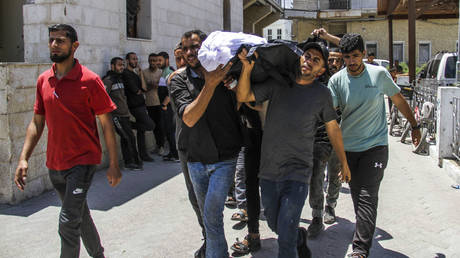The Covid Crisis: A Brief History of the Pandemics of the 21st Century (2000-2020)
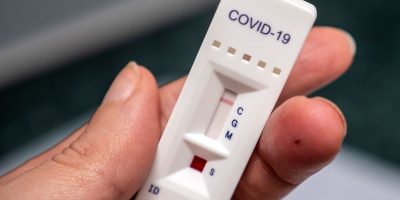
In times of great confusion and anxiety, when it feels like everything is going down the drain, like everyone is stumbling down a steep road, driven by a supposedly unstoppable disaster, it might be helpful to take a moment and a deep breath, to step aside and turn around. One might ask: What brought us here? What is the origin of this road? From where did we follow it? Who was sending us in this direction? Have we been here before? And, maybe even more important: Where will it lead us?
As the Spanish philosopher George Santayana wrote:
“Those who cannot remember the past are condemned to repeat it.”
In this sense, the following is meant as a chronology of some selected events of the last twenty years related to our current situation, some more or less known, some more or less forgotten.
CHRONOLOGY (2000 -2020)
2000
The Bill & Melinda Gates Foundation (founded in 1999), UNICEF, the World Health Organization (WHO) and the World Bank found the “Global Alliance for Vaccines and Immunization“, GAVI. The main goal of this PUBLIC-PRIVATE PARTNERSHIP (PPP) is to shape “healthy vaccine markets“. “GAVI brings together the vaccine industry with governments in both developing and industrialized countries, technical agencies, civil society and private PHILANTROPISTS.” In 1999, the Gates Foundation had pledged $ 750 million to set up GAVI and will make additional future donations of more than $ 4 billion until 2020.
March 15, 2003
Gro Harlem Brundtland, WHO Director-General, states in an alert about the “Severe Acute Respiratory Syndrome“: “This syndrome, SARS, is now a worldwide health threat. The world needs to work together to find its cause, cure the sick, and stop its spread.”
Note: SARS, “the FIRST Pandemic of the 21st Century“, caused by the coronavirus SARS-CoV, originated from China, lead to 8,096 reported cases of illness and 774 deaths worldwide.
Note: Later, in 2019, Brundtland will be co-chair on the “Global Preparedness Monitoring Board” (GPMB), when the SARS-CoV-2 outbreak begins.
November 11-12, 2004
An “Informal meeting on influenza pandemic vaccines” of WHO, influenza vaccine manufacturers, national drug licensing agencies and government representatives takes place in Geneva, Switzerland. The meeting’s goal is to “explore ways to expedite the development of pandemic vaccines“ by establishing PUBLIC-PRIVATE PARTNERSHIPS.
January 2005
As a result of the meeting in November the WHO publishes a report with the title “Avian influenza: assessing the pandemic threat“. The authors claim that “during 2004, the world moved closer to a further pandemic than it has been at any time since 1968.“ About the H5N1 bird flu virus: “NEVER BEFORE had any avian influenza virus caused such extremely high fatality in humans, taking its heaviest toll on children and young adults in the prime of life.”
Note: At this point, the bird flu has caused 50 cases in South-East-Asia during the years 2003 / 2004.
The report emphasizes the importance of vaccination during a pandemic. Under the heading “Vaccines: the first line of defence” it says: “WHO network laboratories developed a prototype virus, for use as the “seed” for vaccine production, and made it available to manufacturers in April 2004.
During pandemics, more severe disease tends to arrive with the SECOND WAVE. Should this happen, a few more months could be available to augment vaccine supplies. Each day gained means an additional 5 million doses of vaccine. Larger quantities of vaccine, supported by well-planned distribution strategies, will SAVE many LIVES.
Ideally, safety testing should be exceptionally extensive, but the pressure to manufacture RAPIDLY during a public health emergency is expected to shorten the time available for testing.”
The authors also recommend the use of the antiviral drugs Tamiflu (Roche) and Relenza (GlaxoSmithKline) for treatment and prevention: “… Drugs in the second and newer class, the neuraminidase inhibitors (oseltamivir and zanamivir), have a better safety profile and are less prone to the development of drug resistance. Here, the main constraints are price and supplies. The drugs are much more expensive than the M2 inhibitors and supplies are very limited.”
March 7, 2005
In an interview with the German news magazine SPIEGEL, Klaus Stoehr, virologist and leader of WHO‘s Global Influenza Program, is asked about the bird flu: “How dangerous will this pandemic be?” He replies:
“The pandemics in 1957 and 1968 were relatively mild with between 1 to 4 million dying in each. (…) Taking into account the increase in the world population since then, one would estimate that a mild pandemic would result in between 2 to 7 million deaths and a further 28 million hospitalized. Health care systems will be OVERWHELMED very QUICKLY .”
Note: Later Stoehr will become Vice President and Global Head of the Influenza Strategy Liaison for Novartis Vaccines, “…driving influenza based interactions with national and international authorities.”
August 3, 2005
Neil Ferguson, professor of mathematical biology at the Imperial College London, UK, warns THE GUARDIAN about the bird flu virus H5N1:
“What can we do if it hits our shores? We couldn’t stop it. There would be a constant number of NEW cases and we would be OVERWHELMED very RAPIDLY. (…) In just one year, half the world’s population – more than 3 billion people – would be infected.”
According to the article, Ferguson, other researchers and British government officials recommend to create a stock of millions doses of antiviral treatment and vaccines as a “first line of defence” against a catastrophic virus outbreak. “Currently the antiviral drug Tamiflu, made by Swiss-based pharmaceutical company Roche, stands the best chance of curbing pandemic bird flu. (…) Prof Ferguson said he understood Roche was prepared to make free donations of Tamiflu to the World Health Organization to help meet the threat.”
Note: In 2002 Ferguson had predicted 150.000 deaths in the UK from the Bovine spongiform encephalopathy (BSE), also known as the mad-cow-disease. During the following 16 years 178 persons died from BSE in the UK.
September 20, 2005
In an interview, published under the headline “H5N1 – KILLER Flu“, Antony Fauci, immunologist and director of the National Institute of Allergy and Infectious Diseases (NIAID) suggests that the US should buy at least 100 million vaccine doses.
“Well, that takes many months. It takes several months to do if you’re doing nothing else. And that’s the reason why one of the issues that comes up when you talk about pandemic flu, is that the vaccine development and production enterprise in this country and worldwide is very fragile.
… the vaccine industry is fragile. It is not a big money maker.”
September 29, 2005
WHO‘s Director-General for Health Action in Crises, David Nabarro, physician and newly appointed senior UN system coordinator for avian and human influenza (bird flu), states in a UN press conference:
“I’m not, at the moment, at liberty to give you a prediction on numbers, but I just want to stress, that, let’s say, the range of deaths could be anything from 5 to 150 million.”
Note: Following WHO’s recommendations and driven by panic about an expectable outbreak of a bird flu pandemic, governments worldwide started stockpiling antiviral drugs and vaccines for large parts of their populations.
September 30, 2005
Neil Ferguson is quoted in an article in THE GUARDIAN: “Last month Neil Ferguson, a professor of mathematical biology at Imperial College London, told Guardian Unlimited that up to 200 million people could be KILLED (Note: by the bird flu).”
“Around 40 million people died in 1918 Spanish flu outbreak,” said Prof Ferguson. “There are six times more people on the planet now so you could scale it up to around 200 million people probably.”
Note: Between 2003 and 2009 worldwide 282 people died from the bird flu.
2006
Warren Buffett, US American business tycoon and Philanthropist, pledges $ 37 billion (85% of his fortune) to the Bill and Melinda Gates Foundation.
November 26, 2006
Warren Buffett is quoted in the NEW YORK TIMES: “There’s class warfare, all right, but it’s my class, the rich class, that’s making war and We’re winning.”
April 24, 2009
WHO announces an outbreak of human cases of H1N1, the swine flu, confirmed in Mexico and the USA.
April 27, 2009
The first two UK cases of H1N1 are confirmed in a couple from Scotland, WHO raises its alert level to Phase 4.
April 29, 2009
British PM Gordon Brown announces that the stockpile of antivirals will be increased from 33.5 to 50 million.
Note: The UK government spent £ 424 million on flu drug Tamiflu, the US government spent $ 1.3 billion on stockpiling 65 million dosages. Global sales of Tamiflu is estimated at almost $ 3 billion at the height of the swine flu pandemic.
May 4, 2009
On WHO‘s website, the criteria for a pandemic
“An influenza pandemic occurs when a new influenza virus appears against which the human population has no immunity, resulting in several simultaneous epidemics worldwide with enormous numbers of deaths and illness.” are altered.
The new definition is: “An influenza pandemic may occur when a new influenza virus appears against which the human population has no immunity.” For the declaration of phase 6 (the highest level, the pandemic) the presence of several simultaneous epidemics and high death numbers are no longer necessary.
Note: Later Andrej Hunko, German MP, will say in a speech at the Parliamentary Assembly of the Council of Europe on 24.06.2010:
“Here I have secret contracts that were signed in Germany between GlaxoSmithKline and the German state. As a simple Member of Parliament, officially I am not allowed to view these contracts. They were posted on the Internet by whistleblowers in Germany.
These contracts specify exactly what needs to happen when phase 6 is announced: what amounts of vaccine doses the states have to buy, etc.. Such contracts were concluded by most states before the criteria have been changed.”
June 11, 2009
WHO‘s Director-General Margaret Chan declares the swine flu pandemic:
“This particular H1N1 strain has not circulated previously in humans. The virus is entirely new (…) Further spread is considered inevitable. On the basis of available evidence, and these expert assessments of the evidence, the scientific criteria for an influenza pandemic have been met. I have therefore decided to raise the level of influenza pandemic alert from phase 5 to phase 6. The world is now at the START of the 2009 influenza pandemic.
WHO has been in close dialogue with influenza vaccine manufacturers. I understand that production of vaccines for seasonal influenza will be completed soon, and that full capacity will be available to ensure the largest possible supply of pandemic vaccine in the months to come.”
Note: Under enormous pressure (and because of the existing contracts) governments bought millions of vaccine doses. Germanyfor example, bought 34 million doses for € 280 million. Only 14% were used, the rest had to be disposed as hazardous waste at high costs.
July 16, 2009
Based on Neil Ferguson‘s advice, the British government warns about the swine flu that “in the worst case scenario 30% of the UK population could be infected by the H1N1 virus, with 65,000 Killed.”
Note: Eventually, the swine flu killed 457 people in the UK.
December 18, 2009
The Parliamentary Assembly of the Council of Europe (PACE) publishes a motion for a recommendation with the title “Faked Pandemics – a Threat for Health“.
The document states about the “birds-flu-campaign (2005/06)” and the “swine-flu-campaign (2009/10)”:
“In order to promote their patented drugs and vaccines against flu, pharmaceutical companies have influenced scientists and official agencies (…) to alarm governments worldwide. They have made them squander tight health care resources for inefficient vaccine strategies and needlessly exposed millions of healthy people to the risk of unknown side-effects of insufficiently tested vaccines.”
The authors also see “a great deal of damage“ for the “credibility and accountability of important international health agencies”. Meant is the WHO: “The definition of an alarming pandemic must not be under the influence of drug-sellers.”
January 2010
Exactly 10 years before the outbreak of the “pneumonia of unknown etiology” in Wuhan, Bill Gates calls for a “DECADE of Vaccines” and pledges $ 10 billion to the WHO for this purpose.
February 2010
In a TED talk Bill Gates says:
“First, we‘ve got population. The world today has 6.8 billion people. That’s headed up to about nine billion. Now, if we do a really great job on new vaccines, health care, reproductive health services, we could lower that by, perhaps, 10 or 15 percent.”
May 2010
The Rockefeller Foundation publishes “Scenarios for the Future of Technology and International Development“. The report predicts four different possible future scenarios. In one of them, called “LOCK STEP“,
“…the pandemic that the world had been anticipating for years finally hit. Unlike 2009’s H1N1, this NEW influenza strain (…) was extremely virulent and deadly. Even the most pandemic-prepared nations were QUICKLY OVERWHELMED when the virus streaked around the world, infecting nearly 20 percent of the global population and KILLING 8 million in just seven months.
The pandemic also had a deadly effect on economies: international mobility of both people and goods screeched to a halt, debilitating industries like tourism and breaking global supply chains.
The Chinese government’s quick imposition and enforcement of mandatory quarantine for all citizens, as well as its instant and near-hermetic sealing off of all borders, SAVED millions of LIVES, stopping the spread of the virus far earlier than in other countries.
During the pandemic, national leaders around the world flexed their authority and imposed airtight rules and restrictions, from the mandatory wearing of FACE MASKS to body-temperature checks at the entries to communal spaces like train stationsand supermarkets. Even after the pandemic faded, this more authoritarian control and oversight of citizens and their activities stuck and even intensified.
Citizens willingly gave up some of their sovereignty – and their privacy – to more paternalistic states in exchange for greater safety and stability. Citizens were more tolerant, and even eager, for top-down direction and oversight, and national leaders had more latitude to impose order in the ways they saw fit. In developed countries, this heightened oversight took many forms: BIOMETRIC IDs for all citizens, for example…”
June 7, 2010
PACE, the Parliamentary Assembly of the Council of Europe publishes the report “The handling of the H1N1 pandemic: more transparency needed“. The report criticizes
“possible influence of the pharmaceutical industry on some of the major decisions relating to the pandemic.
The way in which the H1N1 influenza pandemic has been handled, not only by WHO, but also by the competent health authorities at the level of the European Union and at national level, gives rise to alarm. Some of the consequences of decisions taken and advice given are particularly troubling, as they led to distortion of priorities of public health services across Europe, waste of large sums of public money and also unjustified scares and fears about health risks faced by the European public at large.”
August 10, 2010
The Director-General of WHO, Margaret Chan, declares the end of the influenza (H1N1) pandemic.
Note: The swine flu killed 18.500 people worldwide. For comparison: the seasonal flu 2017 / 2018 killed 25.000 in Germany alone.
December 2, 2010
WHO, UNICEF, US’s National Institute of Allergy and Infectious Diseases (NIAID) and the Gates Foundation announce the “DECADE of Vaccines Collaboration“, a partnership to increase coordination across the international vaccine community and create a “Global Vaccine Action Plan” (GVAP).
“The collaboration follows the January 2010 call by Bill and Melinda Gates for the next ten years to be the Decade of Vaccines. The Global Vaccine Action Plan will enable greater coordination across all STAKEHOLDER groups – national governments, multilateral organizations, civil society, the private sector and Philanthropic organizations.”
Note: Among others, the Leadership Council is comprised of Margaret Chan and Anthony Fauci, Director of NIAID, part of the National Institutes of Health (NIH). The Steering Committee includes (among others) Seth Berkley, President & CEO, International AIDS Vaccine Initiative (IAVI).
September 2012
The “Better Than Cash Alliance” is launched by the UN Capital Development Fund, the United States Agency for International Development, the Gates Foundation, Citigroup, the Ford Foundation, the Omidyar Network, and VISA. The global PUBLIC-PRIVATE PARTNERSHIP consisting of companies, international organizations and 25 (mostly developing) countries, aims to “accelerate the transition from cash to DIGITAL PAYMENTS.”
April 10, 2014
The international network of researchers, Cochrane, provider of “evidence-based informations to make health decisions”, publishes a systematic review about neuraminidase inhibitors (NIs) like Tamiflu. The researchers were also able to use previously secret studies conducted by the manufacturers.
The review found that
“while oseltamivir and zanamivir have small, non‐specific effects on reducing the time to alleviation of influenza symptoms, oseltamivir (Tamiflu) increases the risk of adverse effects, such as nausea, vomiting, psychiatric effects and renal events in adults and vomiting in children, and both drugs do not reduce the important outcomes such as pneumonia and hospitalizations.”
January 17-20, 2017
World Economic Forum (WEF) Annual Meeting in Davos, Switzerland. Official announcement of the foundation of the “Coalition for Epidemic Preparedness Innovations” (CEPI), a global partnership to “develop vaccines to stop future epidemics“ by the Gates Foundation, Wellcome Trust, WEF and the governments of Norway and India.
February 8, 2017
The government of India cuts all ties with Gates Foundation on immunization, after scientists blamed the Gates-funded polio vaccination campaign for almost half a million cases of childhood paralysis. From an article of the INDIAN JOURNAL OF MEDICAL ETHICS: “During the last five years, globally, cases of polio caused by vaccine viruses have outnumbered those of polio caused by natural (wild) polioviruses“.
July 2017
WHO downgrades the status of Tamiflu from a “core” drug to a “complementary” drug. At this point, Roche‘s Tamiflu has generated over $18 billion in sales worldwide, half of it from governments stockpiling the drug.
November 13, 2017
Seth Berkley, CEO of GAVI and board member of ID2020, publishes his article “Immunization needs a technology boost” in the science magazine NATURE. Berkley emphasizes the importance of digital tracking of children who receive vaccines in order to provide “a full course of a vaccine regime“ to 100% of “infants living in the world’s 73 poorest countries” and to “ensure that everyone has a legal identity by 2030.”
January 23, 2018
WEF‘s report “The Known Traveller – Unlocking the potential of DIGITAL IDENTITY for secure and seamless travel” is published in consultation with Accenture, the Government of Canada, Google, Interpol, the Kingdom of the Netherlands, Marriott International, UK National Crime Agency, US Department of Homeland Security, VISA and others.
The “Known Traveler Digital Identity” (KTDI) website claims that KTDI
“brings together a global consortium of individuals, governments, authorities and the travel industry to enhance security in world travel. (…) KTDI allows individuals to manage their own profile and collect DIGITAL ‘ATTESTATIONS’ of their personal data, deciding what data to share and when. The more attestations a traveller accumulates and shares, the better consortium partners, governments and other parties can provide a smooth and safe travel experience.”
Note: Conversely, this could imply that a person unwilling to share data might have to face a hard time in an attempt to travel.
January 25, 2018
At the 48th World Economic Forum‘s Annual Meeting in Davos, Switzerland, several “STAKEHOLDERS” from finance, business, tech companies, foundations and international organizations call to unite in a global PUBLIC-PRIVATE PARTNERSHIP in order to push along the idea of a “DIGITAL IDENTITY for everyone“. Among them: ID2020, World Bank, Barclays, Deutsche Bank, Mastercard, Visa, Microsoft, Accenture, Consumers International, Omidyar Network, FIDO Alliance, GSMA, Hyperledger, Open Identity Exchange, World Identity Network, sedicii, World Food Programme and the UNHCR.
Derek O’Halloran, WEF:
“Digital identities and access systems are foundational elements of our shared digital future. They offer tremendous opportunities for individuals and society, especially for those without formal ID.”
The Government of Canada announces that it will pioneer the testing of the KTDI prototype system together with the with the Kingdom of the Netherlands to “explore opportunities for demonstrating the potential of digital identity systems to engender trust and cooperation between international partners.”
April 18, 2018
At the Malaria Summit in London Bill Gates says: “The world needs to prepare for pandemics in the same serious way it prepares for WAR.”
September 25, 2018
At the “Sustainable Development Impact Summit 2018” in New York, USA, the WEF is announcing the launch of a shared platform for “Good Digital Identity“. Good DIGITAL ID is supposed to provide “access to digital services, enabling personalization, customer loyalty, increased security and reduced costs. Innovative customer services are possible: telemedicine and digital prescriptions, gig economy, more fluid workforce, DIGITAL BANKING via devices in the internet of things (IoT), digital transformation of supply chains and the provision of government services.”
November 18, 2018
Billionaire Media Mogul and former mayor of New York City, Michael Bloomberg donates $ 1,8 billion to the Johns Hopkins University, the largest donation on record to an American academic institution.
September 12, 2019
“Global Vaccination Summit“, Brussels, Belgium. Organized by the European Commission and the WHO, the event‘s overall objective is to “demonstrate EU leadership for global commitment to vaccination, boost political commitment towards eliminating vaccine preventable diseases and engage political leaders and leaders from scientific, medical, industry, PHILANTROPIC and civil society in global action against the spread of vaccine MISINFORMATION.”
The summit’s synopsis
“Ten Actions Towards Vaccination For All” complains that “vaccine shortages, misinformation, complacency towards disease risks, diminishing public confidence in the value of vaccines and disinvestments are harming vaccination rates worldwide.”
September 19, 2019
At the annual summit of the ID2020 Alliance in New York, USA, the “Good Digital ID” project named “Access to Information Cooperation“ (a2i) is announced, run by ID2020, GAVI and the Government of Bangladesh. “Recognizing the opportunity for immunization to serve as a platform for DIGITAL IDENTITY, this program leverages existing vaccination and birth registration operations to offer newborns a persistent and portable biometrically-linked digital identity.”
Note: Immunization means vaccination.
September 24, 2019
António Guterres, UN‘s Secretary General, calls on all sectors of society to mobilize for a “DECADE of Action to deliver the Global Goals“.
October 18, 2019
Event 201, a high-level pandemic exercise takes place in New York, USA. Organized by the Johns Hopkins University, the World Economic Forum and the Gates Foundation, the exercise simulates a pandemic outbreak of a NEW coronavirus from the SARS family. Purpose of the exercise is to show that only with the help of PUBLIC-PRIVATE PARTNERSHIPS the states will be able to face the next severe pandemic(s) without catastrophic loss of lives and economic destruction.
The participants (“players“):
- Brad Connet, President of Henry Schein’s U.S. Medical Group
- Adrian Thomas, Vice President Global Public Health at Johnson & Johnson
- Christopher Elias, President of the Global Development Program of Gates Foundation, adviser of the U.S. CDC (Center for Disease Control and Prevention)
- Tim Evans, formerly World Bank Group, WHO, Rockefeller Foundation, co-founder of GAVI
- Avril Haines, formerly Deputy Director CIA
- Jane Halton, later member of Australia’s COVID-19 Coordination Commission in March 2020
- Matthew Harington, CEO of Print

